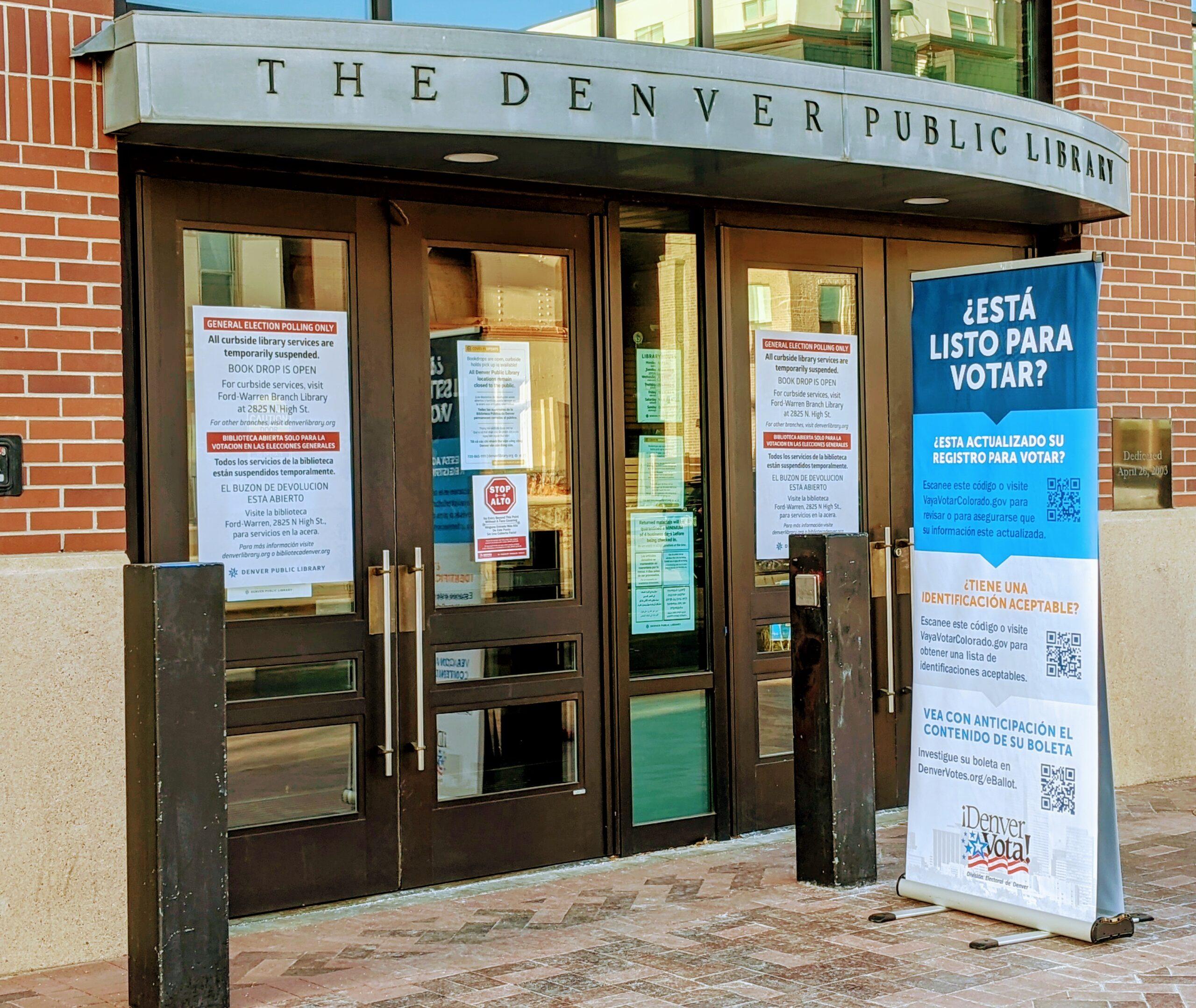Democracy brought three generations of a Denver family together on Tuesday.
Yoruba Johnson had dropped her ballot off last week. But her mother's ballot never reached her. So Yoruba drove from her home in Central Park to Five Points, where she had grown up, to pick up her mother, Cheryl, and take her to vote at the Blair-Caldwell African American Research Library. Yoruba's son, Marquise, came along and went in with his grandmother to vote while his mother waited outside in her SUV.
Yoruba said she usually votes early.
"I haven't actually gone to the line and voted that way since Clinton," she said.
For the first time this year, she'd signed up for a tracing program so that she would be informed when the Denver Elections Division had received her ballot for counting.
"Too much is going on with this voter fraud stuff," she said. "I just want to make sure my vote is counted. I want my vote to count."
Cheryl said that even if her ballot had reached her by mail in time, she would have come to Blair-Caldwell on Tuesday.
"I like to vote in person anyway because I feel like it's going to be counted," she said. "It won't get lost in the process.
"I have to vote. I have to let my voice be counted," said Cheryl, who is Black. "It's a privilege for us to vote. We had to fight to vote. So I will vote."
Cheryl said she first voted in a presidential election for Democrat Lyndon Johnson, who won in 1964 against Republican Barry Goldwater.
Yoruba's first vote was for Bill Clinton, in 1992. Marquise's first vote was Tuesday. He said he had wanted to vote for Donald Trump because of the $1,200 stimulus check he got as part of the federal government's response to the pandemic's impact on the economy, but voted for Joseph Biden at his mother's insistence. His mother laughed, but Marquise said he was serious.
Yoruba, who has voted for Republicans and Democrats, described her choice in Tuesday's election as a vote against Trump. She said she wished she had other choices and hoped that a larger number of viable parties would one day be part of American democracy.
"Democracy to me, the first thing that I think about, is respect," Yoruba said. "Respect for your fellow countrymen."
Cheryl looked to history.
"Oh, democracy, it means freedom," Cheryl said. "Democracy means the right to live. The right to have peace in our life, and justice, and everything that our Martin Luther King stood for."
Marquise chimed in from the back seat, saying that because of democracy, "in America, we have the freedom to walk and talk as we please, as a human being."
Blair Carlson walked out of Blair-Caldwell after voting, her guide dog-in-training Finnigan in tow, as Yoruba sat in her SUV. Carlson said she had grown up in a family that talked politics and valued voting.
"Democracy to me means the celebration of free thought and inclusion of all of the ideas that make up our country," Carlson said.
If she were to become a mother, Carlson said she would try to instill democratic values in her children by teaching them to listen to other perspectives to make sure they "understand where people are coming from."
Bonita Bock, a retired minister, stood down the street from the library entrance, wearing a clerical collar and a face mask. She was among members of a faith-based group that were watching polling across metro Denver, ready to call for help if they saw voters being intimidated. Bock said she had seen nothing untoward at Blair-Caldwell. Contemplating the larger question of democracy caused her to choke up.
"Oh my goodness," she said, and repeated the phrase two times before saying that democracy "means that all of us should participate. And there's such an effort to limit people (from voting). I can't figure out why in the world we would want to do that."
Bock said she hoped the elections would yield a leader who could help America through a period in which a pandemic has exposed and exacerbated inequities and tensions in society.
Yoruba said she and her relatives always discuss the issues, but that this was the first time she had collected family members to ensure they got to the polls. As she prepared to pull away after her mother and son climbed back into the car, she said, "I think we should make this a tradition."
To which her mother responded with a soft, firm, assent: "Mm, hm."












